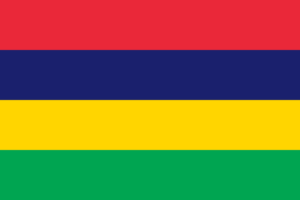 12 May 2021. The Centre for Law and Democracy (CLD) is releasing two documents analysing, respectively, Mauritius’ Information and Communication Technologies Act 2001 (ICT Act) and recently proposed amendments to that Act. The first is a Note highlighting current human rights problems with the ICT Act, including the lack of independence of media regulators and overbroad content restrictions. The second was submitted in response to the Consultation Paper on Proposed Amendments to the ICT Act for Regulating the Use and Addressing the Abuse and Misuse of Social Media in Mauritius (Consultation Paper), issued by the Mauritian Information and Communication Technologies Authority (ICTA) on 14 April 2021.
12 May 2021. The Centre for Law and Democracy (CLD) is releasing two documents analysing, respectively, Mauritius’ Information and Communication Technologies Act 2001 (ICT Act) and recently proposed amendments to that Act. The first is a Note highlighting current human rights problems with the ICT Act, including the lack of independence of media regulators and overbroad content restrictions. The second was submitted in response to the Consultation Paper on Proposed Amendments to the ICT Act for Regulating the Use and Addressing the Abuse and Misuse of Social Media in Mauritius (Consultation Paper), issued by the Mauritian Information and Communication Technologies Authority (ICTA) on 14 April 2021.
“The ICT Act already imposes undue restrictions on the rights to freedom of expression and privacy but the new proposals, if implemented, would represent a flagrant violation of these rights for every Mauritian who uses social media,” said Toby Mendel, CLD’s Executive Director. “Mauritian authorities should abandon these drastic proposals and instead address the underlying human rights problems with the ICT Act.”
The 14 April 2021 proposals would require all social media traffic to and from Mauritius to be routed through a proxy server run by the ICTA, and establish systems to break any encryption provided by social media platforms and conduct official surveillance of all of this traffic. The goal is to enforce existing (very problematical) content restrictions in the ICT Act and to add new responsive measures, including widespread powers to block offending social media pages and content. Implementation would be done by a technical enforcement agency operating under the ICTA, which is not independent of government, and a new content-adjudication agency, which is also unlikely to be independent.
CLD’s submission debunks the misleading justifications provided by the ICTA for these drastic proposals and makes several key recommendations, including to:
-
- Abandon these extreme proposals and, instead, focus on working more closely with social media platforms, and building the capacity of the people and institutions of Mauritius to address problems flowing from social media.
- Ensure that any regulatory bodies which have the power to regulate freedom of expression, whether new or existing, benefit from both formal and structural protections against political and commercial interference.
CLD’s key recommendations for improving the current ICT Act include:
-
- Enhance the independence and diversity of the four regulatory and advisory bodies it creates.
- Amend the licensing scheme which regulates too many services, has vague criteria for the issuance and removal of licences, and authorises intrusive search powers.
- Remove or substantially amend the numerous vague and overbroad content and other offences which criminalise everyday speech and behaviour, and can result in fines of up to USD25,000 and ten years’ imprisonment.
The submission on the 14 April 2021 Consultation Paper is available here.
The Note that assesses the existing ICT Act can be found here.
For further information, please contact:
J.Y. Hoh
Legal Officer
Centre for Law and Democracy
Email: jyhoh@law-democracy.org
+1 416 833 2918
www.law-democracy.org
twitter: @law_democracy



